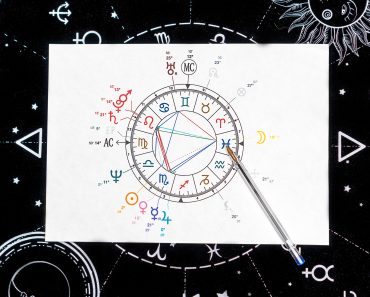Love can be wonderful, but when a relationship becomes toxic, it can harm your emotional and mental well-being. Toxic relationships can lead to anxiety, depression, and low self-esteem, affecting your health and happiness.
Love in a toxic relationship can seem genuine but is often mixed with fear, control, and dependency, which can mimic passion. True love is characterized by respect, trust, and mutual support—qualities often missing in toxic relationships.
Understanding these issues is the first step toward healing and finding healthier connections. Remember, staying in a toxic relationship can have serious impacts on your mental and physical health, so seeking help and focusing on your well-being is crucial.
8 Signs of Toxic Relationship

Toxic relationships can harm your emotional, psychological, and physical health, as well as your social connections. Recognizing toxic behaviors is key to identifying these unhealthy patterns.
While it’s not always easy to see, acknowledging the signs is an important step toward making better decisions for your future. These signs of behavior are:
-
Constant Criticism and Control
If your partner frequently criticizes you or tries to control your actions, it’s a sign of a toxic relationship. This behavior can make you doubt your worth and lose confidence in yourself.
Over time, constant negativity erodes your independence and self-esteem, making it difficult to recognize your strengths and make decisions on your own.
-
Emotional Manipulation
Toxic partners often use emotional manipulation to get their way. They might make you feel guilty, scared, or obligated to do what they want. This can include playing the victim or twisting situations so you feel responsible for their feelings. This kind of manipulation is damaging because it makes you feel trapped and unable to express your true emotions.
-
Isolation from Friends and Family
A common tactic in toxic relationships is isolating you from your support network. Your partner might discourage you from seeing friends or family, making you more dependent on them for emotional support. This isolation can be subtle at first but eventually leads to you feeling cut off from others, making it harder to reach out for help when needed.
-
Lack of Trust and Respect
Healthy relationships are built on trust and respect. If your partner lies to you, betrays your trust, or disrespects your boundaries, these are major red flags.
Without trust and respect, a relationship cannot thrive. Instead, it becomes a source of stress and insecurity, where you’re constantly questioning your partner’s intentions and actions.
-
Cycle of Abuse
Toxic relationships often follow a pattern of abuse and reconciliation. After a period of hurtful behavior, your partner might show affection or apologize, making you believe things will improve.
However, this is usually short-lived, and the cycle of abuse starts again. This pattern keeps you in a state of confusion and false hope, making it hard to leave the relationship.
-
Feeling Unsafe
In a healthy relationship, you should feel safe and secure, both physically and emotionally. If you often feel on edge, anxious about your partner’s reactions, or worried about provoking anger, it’s a clear sign the relationship is not safe. Constant fear or anxiety is not normal and indicates that your well-being is at risk.
-
Disrespect and Unmet Needs
If your partner frequently disrespects you—whether through words, actions, or ignoring your boundaries—it’s a sign of an unhealthy relationship.
Disrespect can manifest as public humiliation, private belittlement, or disregarding your feelings and needs. Additionally, if your emotional, physical, or psychological needs are consistently unmet, it’s a strong indication that the relationship is toxic.
-
Diminished Self-Esteem
A significant indicator of a toxic relationship is a noticeable decline in your self-esteem. If you start feeling worthless, doubting your abilities, or believing you don’t deserve better treatment, it’s likely due to your partner’s negative, critical, or dismissive behavior.
10 Ways to End a Toxic Relationship

Leaving a toxic relationship is difficult due to emotional ties, fear of loneliness, financial dependence, and the hope for change. These factors, combined with the erosion of self-confidence, can make leaving seem overwhelming.
However, ending a toxic relationship is crucial for your well-being. It requires courage, planning, and support, but it’s a vital step toward a healthier, happier life.
Remember, you’re not alone—resources are available to help. Here are some ways to prioritize your happiness and well-being to find fulfilling relationships that bring joy and support:
-
Recognize the Need for Change
Acknowledge that the relationship is causing harm and that you deserve to be in a healthier, more supportive environment. Accepting this reality is crucial for initiating positive change and prioritizing your own happiness.
-
Seek Support
Reach out to trusted friends, family members, or mental health professionals who can offer emotional support and practical advice. Having a support network can make the process of ending the relationship less overwhelming and provide you with the encouragement you need.
-
Set Clear Boundaries
If it’s safe, communicate your boundaries to the other person. Clearly state what behaviors are unacceptable and what actions you will take if these boundaries are crossed, helping you reclaim your autonomy and protect your well-being.
-
Create a Safety Plan
If the relationship involves any form of abuse or if you have concerns for your safety, develop a detailed safety plan. This plan should include securing financial resources, finding a safe place to stay, and listing emergency contacts for immediate support.
-
Gradual Disengagement
In some cases, it may be more practical to slowly reduce contact with the toxic person rather than an abrupt cut-off. This method can help you adjust emotionally and logistically while minimizing confrontation and providing time for a smoother transition.
-
Direct Conversation
When it is safe and feasible, have a direct and honest conversation about ending the relationship. Focus on expressing your own needs and feelings without placing blame, and remain firm in your decision to avoid being persuaded to stay.
-
Cut Off Contact
If the situation is dangerous or your well-being is at risk, it may be necessary to completely cut off all forms of contact with the toxic person. Blocking phone numbers, emails, and social media accounts can help protect you from further harm and facilitate your recovery.
-
Seek Professional
Help Consulting with a therapist or counselor can provide valuable support and strategies for navigating the end of the relationship. Professionals can help you address any emotional trauma, build self-esteem, and develop healthier relationship patterns.
-
Focus on Self-Care
Prioritize self-care to help you recover from the emotional strain of ending a toxic relationship. Engage in activities that bring you joy and relaxation, such as exercise, hobbies, or spending quality time with supportive friends and family.
-
Reflect and Learn
After leaving the toxic relationship, take time to reflect on the experience and what you’ve learned from it. Understanding the dynamics of the relationship and recognizing red flags can help you make better choices in future relationships and foster healthier connections.
How to End a Toxic Relationship?

Recognizing the signs of toxicity, such as feeling drained, frequent disrespect, and power imbalances, is crucial for emotional health and happiness. If you notice these signs, reflect on how the relationship impacts your well-being.
Understanding and addressing these issues can help you reclaim your life and build healthier, more fulfilling relationships. Remember, love should uplift and inspire, not hurt and diminish.
For further insights on finding true love and understanding your relationship needs, visit Soulmate Sketch to explore how a personalized sketch might guide you towards your soulmate.






